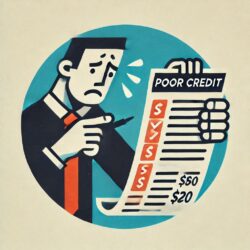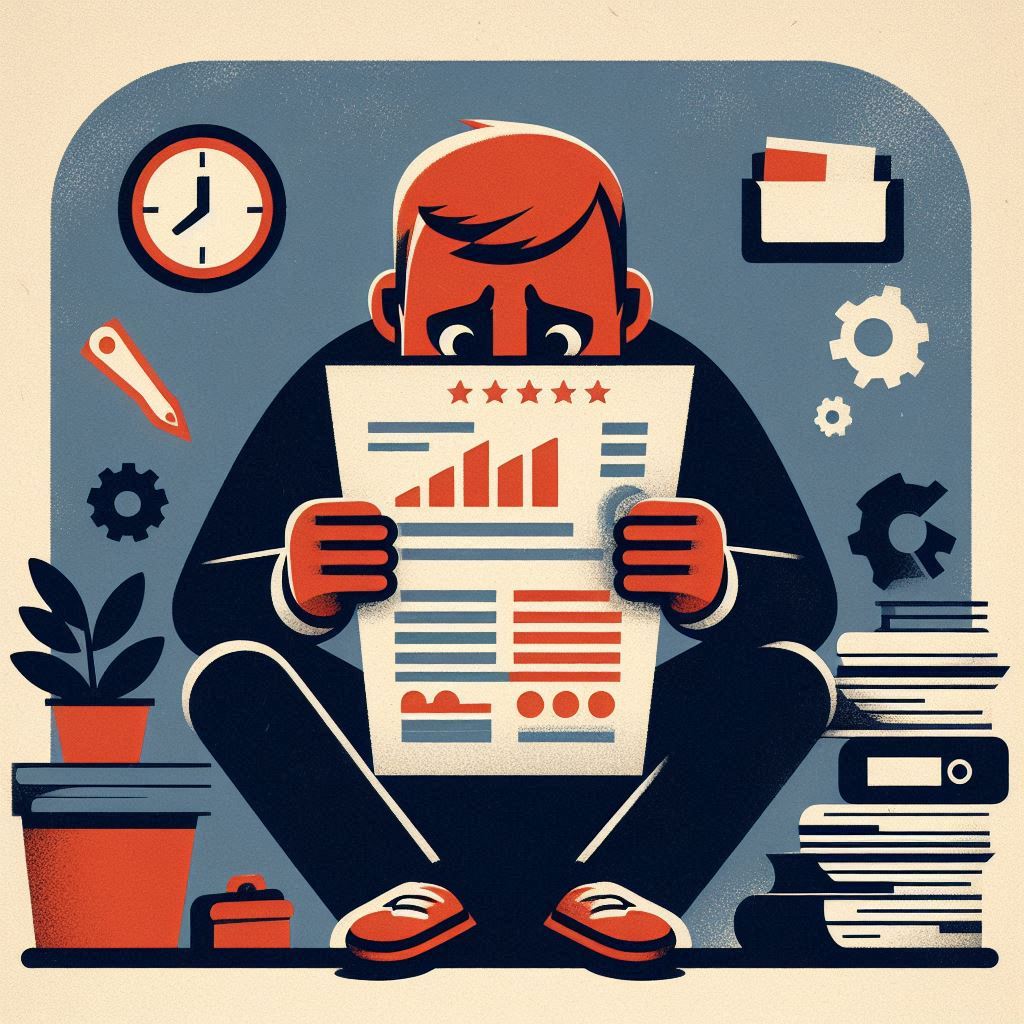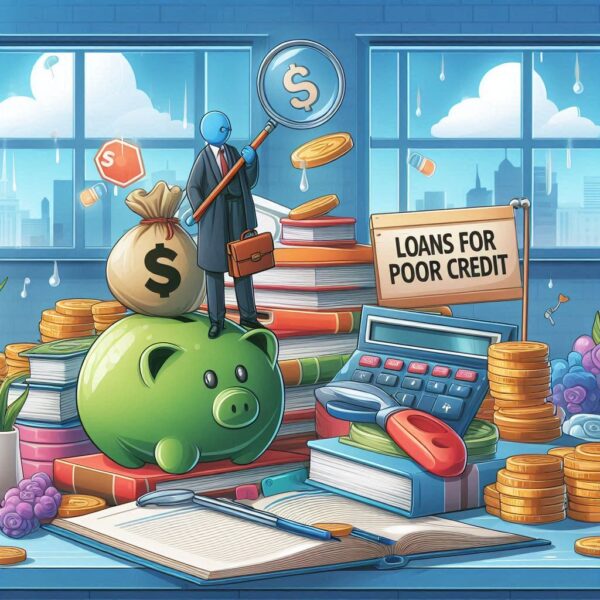Debt consolidation loans are financial tools that combine multiple debts into one, often with a lower interest rate. They’re designed to simplify repayment and reduce the burden of high-interest debts, especially for those struggling with poor credit.
Poor credit can make managing multiple debts a real headache. With several payments due at different times and high-interest rates eating away at your finances, it’s easy to feel overwhelmed. This is where debt consolidation steps in, offering a lifeline to regain control over your financial situation.
One major benefit of debt consolidation loans is the potential to lower your overall interest rate. By securing a loan with a lower rate than your existing debts, more of your payment goes towards the principal balance, which helps you pay off the debt faster and reduces the total amount you’ll pay over time.
Debt consolidation can also positively impact your credit score. With poor credit, timely repayment of consolidated debt can demonstrate responsible financial behavior. Over time, this could result in a credit score boost, opening the door to better financial opportunities in the future.
Another advantage is the simplification of your financial life. Managing one single payment each month is a lot easier than juggling multiple due dates and amounts. This reduction in complexity can relieve stress and provide a clearer path to financial recovery.
This post contains affiliate links. If you make a purchase through these links, I may earn a commission at no extra cost to you.
Contents
Top Debt Consolidation Loan Providers for Poor Credit
Tackling debt can be tough, especially when your credit score isn’t great. But finding the right loan provider can make a big difference. It’s important to know who’s out there offering workable solutions for folks with less-than-perfect credit.

One well-regarded option is Avant. They’re known for working with borrowers who have lower credit scores, offering loan amounts from $2,000 to $35,000 with APRs ranging between 9.95% and 35.99%. Their terms range from 24 to 60 months, providing flexibility depending on how quickly you want to pay off the debt.
Another solid choice is OneMain Financial. They specialize in personal loans for those with poor credit and have been around for over a century, which speaks volumes about their reliability. Loan amounts go up to $20,000, with APRs between 18.00% and 35.99%. They also offer both secured and unsecured loan options, giving you more choices tailored to your situation.
Upstart is another lender worth considering. They use artificial intelligence to assess loan applications, which means they consider factors beyond just your credit score. This can be beneficial if you have a steady income or a strong educational background. Loan amounts range from $1,000 to $50,000, and you could see APRs from 5.31% to 35.99%.
LendingClub, a peer-to-peer lending platform, is known for its transparency and inclusive approach. They cater to borrowers with varying credit profiles, offering loans up to $40,000. Their APRs range from 8.05% to 35.89%, and their straightforward application process makes it easy to get started.
When choosing a lender, consider the specific terms and offers that align with your financial needs. Look closely at the interest rates, repayment terms, fees, and application process to ensure you’re making an informed decision.Tips from Coinscadd
Tips to Improve Loan Approval Chances with Poor Credit
Getting approved for a debt consolidation loan with poor credit can feel challenging, but there are several strategies to improve your chances. Here are actionable tips that can help you secure a loan and possibly lower the cost of borrowing:
1. Add a Co-signer to Your Application
One of the most effective ways to improve your loan approval chances is to apply with a co-signer who has a strong credit history. A co-signer acts as a guarantor, promising to repay the loan if you’re unable to.
Why It Works:
Lenders view co-signed loans as less risky since they have two individuals responsible for repayment. This not only increases your likelihood of approval but can also result in:
- Lower interest rates
- Higher loan amounts
How to Do It:
- Choose the Right Co-signer: Ask a trusted friend or family member with a strong credit profile and stable income.
- Communicate Clearly: Ensure the co-signer understands their legal obligations before signing.
While this is a great option, remember that failing to make timely payments can negatively affect both your and your co-signer’s credit.
2. Pay Off Small Debts First
Before applying for a loan, consider paying off small debts to improve your credit score. Reducing your outstanding balances can significantly impact your credit utilization ratio, which is a key factor in your credit score.
Why It Works:
Lenders assess your credit utilization—the percentage of your available credit you’re using. Lowering this percentage demonstrates better financial responsibility, even if your credit score isn’t perfect.
How to Do It:
- Focus on High-Interest Debt: Start with credit cards or accounts with the highest interest rates.
- Create a Budget: Allocate extra funds from discretionary spending to make targeted debt payments.
- Check Your Credit Report: Verify that your efforts are reflected in your credit score before applying.
Even a small improvement in your score could make the difference between approval and rejection or qualify you for better terms.
3. Consider Secured Loans
If your credit score is a significant barrier, opting for a secured loan may help. A secured loan requires collateral, such as a car, savings account, or other valuable assets, to back the loan.
Why It Works:
Collateral reduces the lender’s risk, making them more likely to approve the loan. In many cases, secured loans also come with:
- Lower interest rates
- Higher loan limits
How to Do It:
- Identify Assets for Collateral: Common options include vehicles, real estate, or certificates of deposit (CDs).
- Understand the Risks: Be aware that failing to repay could result in losing the collateral.
- Shop Around: Compare lenders to find those offering favorable terms for secured loans.
4. Other Tips to Boost Approval Chances
- Check Your Credit Report for Errors: Ensure your credit report is accurate by disputing any errors that could drag down your score.
- Show Proof of Income: Highlighting a steady income stream can reassure lenders of your repayment ability.
- Limit New Credit Applications: Avoid applying for other loans or credit cards shortly before submitting your application, as multiple inquiries can lower your score.
By applying these tips, you’ll position yourself as a more reliable borrower, even with poor credit. This not only increases your chances of loan approval but may also help you secure more favorable terms in the process.
Key Features to Look for in Debt Consolidation Loans for Poor Credit
Finding the right debt consolidation loan means paying attention to several key features. These can make a big difference in how effective the loan will be in helping you manage and pay off your debts.

Interest rates and Annual Percentage Rate (APR) are top of the list. Generally, the lower the APR, the better. It means you’ll pay less in interest over the life of the loan. For those with poor credit, it’s crucial to find the most competitive rate available to keep costs down.
Loan terms refer to the length of time you have to repay the loan. Shorter terms typically mean higher monthly payments but less interest paid overall. On the other hand, longer terms can lower your monthly payment but might cost you more in interest. Balancing these factors based on your budget is key.
Fees and additional charges can add up, so it’s important to be aware of them. Some common fees include origination fees, prepayment penalties, and late payment fees. Make sure to read the fine print and understand what fees you might be responsible for.
Eligibility criteria are another crucial factor. Each lender has different requirements, and knowing them upfront can save you time and protect your credit score from unnecessary checks. Typical factors include credit score, income level, and existing debt load.
Customer service and lender reputation should not be overlooked. A lender’s responsiveness and willingness to work with you can greatly impact your loan experience. Reading reviews and researching the company’s history can provide valuable insights into what you can expect.
Alternatives to Debt Consolidation Loans for Poor Credit
While debt consolidation loans can be a lifeline, they aren’t the only option available. Exploring other alternatives can sometimes provide better results, especially if the terms of the consolidation loan are not favorable to you.
Debt management plans involve working with a credit counseling agency to create a plan for paying off your debts. They can negotiate with your creditors to reduce interest rates and fees, potentially lowering your monthly payments. It’s a structured way to tackle your debt, but it requires commitment and discipline.

Credit counseling is another viable option. A credit counselor can provide personalized advice and strategies for managing your debt. They can help you develop a budget, suggest ways to cut expenses, and give you tips on how to improve your credit score. This option is particularly useful if you’re not sure where to start.
Debt settlement involves negotiating with your creditors to pay off your debt for less than what you owe. While this can significantly reduce your debt, it can also negatively impact your credit score and should be considered carefully. It’s often best to work with a reputable debt settlement company to navigate this process.
Bankruptcy is often seen as a last resort due to its long-lasting impact on your credit. However, in some cases, it might be the best way to get a fresh start. Consulting with a bankruptcy attorney can help you understand the potential consequences and whether this option is right for you.
Each of these alternatives has its own set of pros and cons. It’s important to weigh your options carefully and consider seeking professional advice to choose the best path for your situation.
Tips for Improving Your Credit Score and Financial Health
Getting control over your debt is a major step, but long-term financial health means boosting your credit score and developing good money habits. It may seem challenging, but with the right strategies, you can make steady progress.
Start by tackling your existing debt. Prioritize paying down high-interest debts first, as they cost you the most in the long run. Making more than the minimum payment whenever possible can also help reduce your principal faster.
Building and sticking to a budget is crucial. Track your income and expenses to figure out where your money goes. Identify areas where you can cut back and redirect those funds towards paying off debt. Stay committed to your budget to avoid falling back into bad habits.
Using credit responsibly is another key factor. Avoid making late payments, as these can significantly harm your credit score. Keeping your credit card balances low relative to your credit limit (also known as your credit utilization ratio) can positively impact your credit rating.
Seeking professional financial advice can provide you with personalized strategies tailored to your situation. A financial advisor can help you create a plan for debt repayment, savings, and even investments, ensuring you’re on the right path.
There are plenty of resources available to help you maintain good financial habits. Online tools, financial literacy courses, and even apps can assist in budgeting, tracking your credit score, and managing your finances.
Improving your credit score and financial health takes time and discipline, but the benefits are worth it. Better credit opens up more opportunities, from better loan rates to improved housing options, giving you more freedom and peace of mind.
“Information is for general purposes only and not financial or legal advice. Coinscaddy is not a lender and makes no guarantees. All offers are subject to credit approval, terms, and state restrictions. Coinscaddy may earn referral fees at no extra cost to you. Consult a qualified professional before acting.”


You did an awesome job breaking down debt consolidation options for those with poor credit. I love how you explained the pros and cons of different lenders—it really helps people make an informed decision. The section on understanding APRs was super helpful too, especially for someone like me who’s not super familiar with all the financial terms.
Thank you so much, Bob! I’m glad you found the breakdown helpful, especially the section on APRs. Here’s an extra tip: when comparing APRs, it’s also a good idea to ask lenders if the rate is fixed or variable. Fixed APRs stay the same for the entire loan term, while variable APRs can fluctuate, which may affect your monthly payments. Keeping an eye on these details can help you better manage your loan over time. If you have any other questions, feel free to ask!
Charzaria,
Your article on debt consolidation loans for people with poor credit gives a helpful look into a tricky topic. I liked how you focused on the possible benefits, like lower interest rates, easier payments, and improved credit scores. These are big advantages that can really help someone’s financial situation.
But while you mentioned lower interest rates, it might help to explain a bit more about the difference between APR and interest rates. APR is often higher than the interest rate and can vary a lot depending on the lender and a person’s credit score. Someone with poor credit might still end up with a high APR, sometimes even higher than their original debts. This is important for people to understand before they make a decision.
Your overview of lenders like Avant, OneMain Financial, Upstart, and LendingClub is a good starting point. However, just listing their APR ranges and loan amounts might not be enough to help readers pick the best option. Adding a comparison table with things like fees, early payment penalties, and specific requirements would make it more useful. For example, Upstart’s use of AI sounds interesting, but explaining how that helps people with poor credit would add more value.
The section on alternatives to debt consolidation loans is helpful, but it could be better by discussing the downsides a bit more. For example, debt settlement can reduce what someone owes, but it can also hurt their credit score a lot, so it’s important to consider this trade-off. Also, mentioning bankruptcy could be expanded to cover the long-term effects and how complex it can be.
Finally, I agree with your advice on improving financial health in the long run. Your budgeting tips, using credit wisely, and getting professional advice are spot on. Maybe add some links to useful budgeting tools and credit counselling resources to help readers take action.
Your article does a great job explaining debt consolidation loans for people with poor credit. With these suggestions, it could become an even more helpful guide for readers dealing with debt management.
Eric
Thank you, Eric, for your insightful and constructive feedback! I appreciate you pointing out the importance of clarifying the difference between APR and interest rates; that’s a valuable observation. I will create a comparison table to better illustrate lender options and elaborate on the possible drawbacks of alternatives such as debt settlement and bankruptcy. Your suggestions for including links to budgeting tools and credit counseling resources are also fantastic for helping readers take actionable steps. Thanks once more for your input—I’m eager to enhance this article to better assist those dealing with debt management.